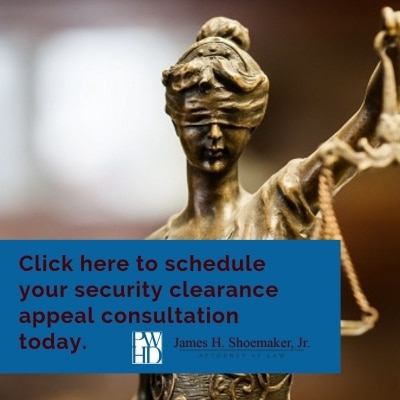
Acquiring more advanced security clearances necessitates even more detailed investigations. Being denied a clearance could have a massively detrimental effect on your career, either through preventing you from getting a promotion or being hired in the first place. However, you’re not out of options if this happens to you. Here is an overview of how to appeal a clearance denial and the steps you can take to help reach a favorable outcome.
Reasons Why Security Clearances are Denied
Security clearance applications involve, among other investigations, criminal background checks and credit checks. Common reasons for clearance denials include:
- Outstanding debts
- Personal conduct
- Criminal behavior
- Drug use
- Alcohol abuse
- Extramarital affairs
- Mishandling classified material
- Psychological issues
- Foreign influence
How to Appeal a Security Clearance Denial
When you apply for a security clearance, a Central Adjudications Facility, or CAF, will investigate your background. If it finds potentially disqualifying information, it will send you two documents:
- Letter of Intent: This is a warning that something in your background needs to be addressed, or your clearance will be denied.
- Statement of Reasons: This document explains exactly what the CAF found in your background that needs to be addressed.
If you receive a Letter of Intent and Statement of Reasons, you only have 15 days to respond, so it’s crucial to act immediately. This means hiring an experienced security clearance attorney. To successfully appeal your denial, you must provide hard evidence that mitigates every allegation in the statement of reasons.
When you and your attorney provide evidence to the CAF, it will decide whether you’ve sufficiently refuted the claims in the Statement of Reasons. If so, your clearance will be granted. If not, you’ll receive two additional documents:
- Letter of Notification: This document officially denies or revokes your security clearance.
- Notice of Intent to Appeal: This gives you the option to appeal your denial one final time. You have 10 days to return the notice with your decision to appeal or not.
Final Appeal of a Security Clearance Denial
You have two options for appealing a security clearance denial:
- A written appeal to the Personnel Security Appeals Board, or PSAB
- A hearing before a Defense Office of Hearings and Appeals, or DOHA, administrative judge
The PSAB is the final decision authority for security clearances. If you choose to make a written appeal to them, you will have to send them any mitigating documents and statements within 30 days of returning the Notice of Intent to Appeal. The PSAB will review all documentation and make a final decision.
If you choose to make your appeal before a DOHA administrative judge, you will have a hearing in which you and your attorney can provide evidence and give statements. After the hearing, the administrative judge will make a recommendation to the PSAB, which will make a final decision based on the judge’s recommendation. If your clearance is denied, you may reapply in one year.
Schedule Your Security Clearance Attorney Consultation Today
The fundamental nature of a security clearance in obtaining many federal, military, or contract jobs makes having an experienced attorney by your side essential if your clearance is denied. James H. Shoemaker, Jr. has represented employees in security clearance appeals for decades.
Mr. Shoemaker serves Virginia Beach, Hampton Roads, and Washington, D.C. Call (757) 223-4580 today to schedule a consultation.
